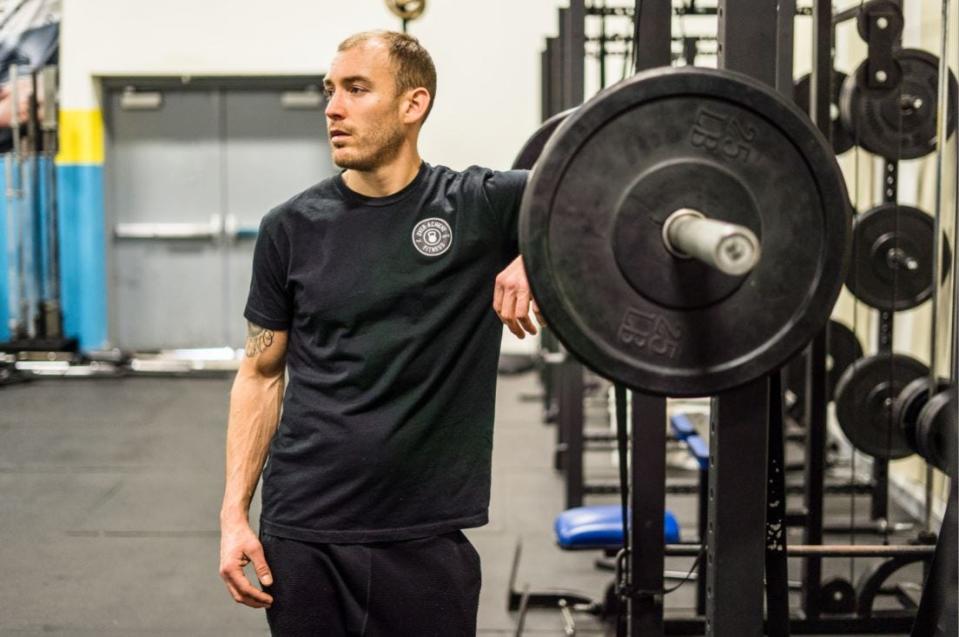I wore a blood glucose monitor for a month. Here's what I learned
After spending a month wearing the Libre 3 continuous blood glucose monitor, I came up with a bunch of answers to many common questions I get on the topic.
Blood glucose is the body's preferred source of energy.
When you check blood sugar levels, you are checking the amount of sugar present in the blood at that point in time. This sugar is absorbed and used as a source of energy!
It plays a role in many functions:
Hunger
Cravings
Energy
Brain health
Mood stability
Weight management
Sleep quality
… and more! This is why blood sugar balance is important for EVERYONE, not just those with diabetes.

There are two hormones that regulate blood sugar: insulin and glucagon. Insulin is secreted by the pancreas in response to carbohydrates (sugar) entering the bloodstream. Insulin's job is to facilitate the transfer of that sugar into your cells, which brings your blood sugar levels back to a normal range.
Glucagon works by doing the opposite - it brings sugar levels up when they drop too low by stimulating the liver to release its glucose stores into the bloodstream.
When balanced, the body should be able to handle glucose and bring down blood sugar levels within two hours of eating; however, as you'll soon learn, there are many reasons for dysregulation of this process.
My blood glucose level has been high, chronically high, due to things I've done over the years, including overtraining, under recovering, breaking down muscle mass and having poor sex hormone health.
Here is an example for a full day after a hard high-intensity interval training (HIIT)- and CrossFit-type workout that kept my heart rate over 150 beats for minute for over an hour. It jumps over 100 after I train and never comes back down, even when I am sleeping.
The goal is to keep sugars stable and to keep your level between the mid 70s and high 80s/low90s. (Ideal goal is really consistent in the mid-80s).
The other key things that can impact your sugars are:
Cortisol
Sleep
Training
Surplus days (storing fat/higher insulin from refeed)
Proportion
Not recovering appropriately from training
Breaking down muscle mass
Sex hormones (high estrogen and/or androgens)
What many don’t realize is the simple fact that you can be glucose intolerant, or what some call “carb intolerant.” While there is no such thing as your body not “liking carbs,” it can become dependent on your sources of fuel. If you practice everyday playing catcher for your team, you wouldn’t expect to perform when your coach puts you in at second base.
If you want to learn to tolerate carbs, you need to eat them first. Avoiding them is the worst thing to do for your body and blood sugar response. In fact, on days I didn’t eat carbs I found my glucose was HIGHER….why?
Cortisol is modulated with carbohydrate intake. So when you drop carbs, you spike cortisol which has a role in mobilizing stored energy. No energy, no dice! Your body will be circulating glucose all over.
As you age, you will hear about the glycemic index (GI) more and more. This truly does have some merit for diabetics and those wanting to watch blood sugar.
Fruit, for example, has a GI of 40, whereas high fructose corn syrup has a GI of 80 - double the amount. Now, does eating foods higher on the GI index make you inedibly gain weight? No!
This is where the myths come in.
It all depends on the body the food enters!
What is your blood sugar level right after eating, and what is it 23 hours after eating? If you are healthy, you will see it come back down, which is what we want. However, if it stays elevated, you may begin having some more trouble.
A quick tip for those of you who want to manage it better: Add more muscle.
Life weights, lift moderately heavy loads. More muscle means more mitochondria and that can help you burn 50 more calories per pound of muscle you add with exercise.
Other things to avoid to keep your blood sugar in check:
Alcohol (poor liver will increase glucose)
Toxins (additives)
High CRH (sugar rises, so does cortisol and then the inevitable crash that comes)
Inflammation (NF Kappa B inhibits the process)
Gut issues (will block insulin)
After this month, it’s safe to say that my blood sugar will be balanced and natural with a healthy dose of three to four days a week of weight training, two or three 20-minute walks daily and a whole food-based diet with plenty of sleep and water.
If you treat the body right, you can treat it to more metabolic flexibility which is why the pizza I ate last weekend had me losing weight.
Check out my Revive System and learn how it can help you at revive-systems.com.
Mike Over is a fitness coach based in Chambersburg. Follow him on Instagram, @mikeoverfitness.
This article originally appeared on Chambersburg Public Opinion: I wore a blood glucose monitor for a month: Mike Over

